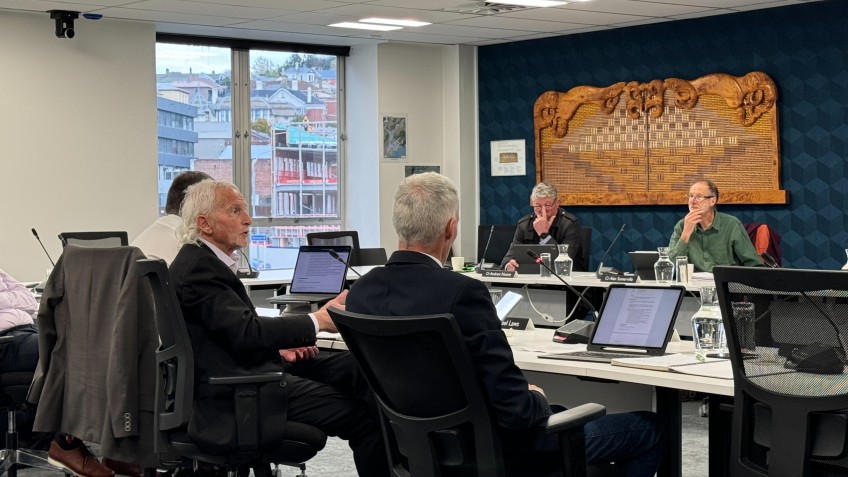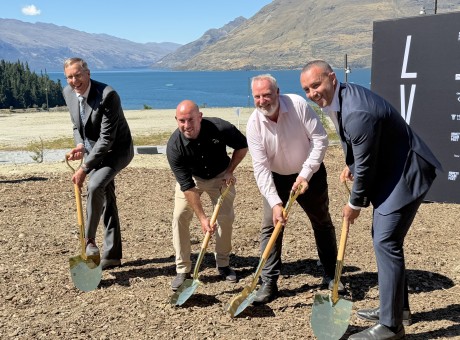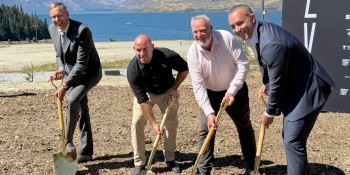Tetchy exchanges during fiery Otago Regional Council meeting

Simmering tensions between local and central government, Otago Regional Councillors and the wider public were on full display earlier today, with insults and jeers flying at an extraordinary meeting of the Otago Regional Council.
The meeting was called to update councillors on a meeting last week, between ORC representatives and government ministers Penny Simmonds and Todd McClay, around the council’s draft Land and Water Regional Plan, a huge piece of environmental legislative work - six years in the making.
A staff report to the council, noting the meeting details, said the ministers had urged the council to delay publicly notifying its draft plan. It also noted the ministers offered to work with ORC if there were specific issues in Otago that needed to be resolved should the plan not be notified.
However, a motion put forward by Councillor Kevin Malcolm proposing the council halt work on the draft plan immediately, resulted in tetchy exchanges between councillors and jeers, mostly aimed at Cromwell-based councillor Michael Laws, from a packed public gallery.
Councillor Malcolm said halting work until the government had finalised its plans to establish a national policy statement on freshwater management would avoid financial ramifications for the region’s ratepayers, should government regulations result in work on the plan being repeated.
“They will not be giving us a free environmental pass. This is about getting New Zealand moving in the right direction.”
The motion was supported by Dunstan-based councillors Gary Kelliher and Councillor Laws.
“The only logical thing to do is pause,” Councillor Kelliher said.
Meanwhile Dunstan's third councillor, Alexa Forbes, was opposed to the proposal to halt work on the land and water plan, pointing out it had already cost $18 million.
“There is nothing about this that is about going forward. We are on a journey, we have been on it and it is going the right way.”
Councillor Elliot Weir agreed. Pausing the plan was a “terrible idea”, he said.
He went on to say Councillor Malcolm’s motion was disingenuous, causing Councillor Malcolm to demand a retraction.
Councillor Weir refused but was ordered to retract the comment by chair Gretchen Robertson.
Councillor Laws was scathing of councillors who were wanting to press on with the plan which would be “infused” with the wrong priorities at the wrong time.
He said it was “bollocks” to say the plan represented local direction, because “every sentence” of it was infused with policy directions from the previous government.
Mentioning Councillor Forbes by name, he said it was true the ORC was on a journey.
“It is on a journey in the wrong car, in the wrong direction, following the wrong map.”
This had been pointed out to the councillors by the ministers last week, he said.
That resulted in jeers from the public, forcing the chair, Councillor Robertson, to issue a warning to the public for the second time.
Minutes later a third and final warning was issued following repeated interruptions from the public gallery as Councillor Laws was speaking.
At one point Councillor Laws returned comments to a member of the public.
Councillors voted seven to five in division against Councillor Malcolm’s notion, meaning the council will continue with work on the draft land and water plan ahead of a vote on whether or not to issue the draft for public notification in October.
Responding to Crux, Environment Minister Penny Simmonds said meeting with the ORC provided an opportunity to “openly exchange views” and ensure ORC understood the government’s concerns.
“Late last year, cabinet removed the requirement for councils to implement freshwater plans by the end of 2024 to avoid unnecessary costs and compliance duplication for councils and ratepayers.
“We discussed the government’s signalled policy direction and noted there appeared to be major concerns from a number of their key stakeholders regarding both their proposed plan and the potential costs associated with their processes.
“The government and ORC will continue engaging on how we can work together.
“The government is committed to replacing the NPS-FM (National policy statement for freshwater management) to better reflect the interests of all water users, and to allow councils more flexibility in how they meet environmental limits.
“Our objective for resource management reform is simple – we want to make it easier to get things done in New Zealand.”
Minister Simmons said the government was taking a phased approach to reforming the resource management system.
Phase one was to repeal the Natural and Built Environment Act and Spatial Planning Act, which it did before Christmas in 2023.
Phase two started with the introduction of the Fast-track Approvals Bill.
“The rest of phase two includes targeted changes to the RMA through two amendment bills to relieve the most significant resource management issues in the short term, and a programme of changes to national direction.
“Phase three involves the government’s commitment to replace the RMA with legislation premised on the enjoyment of property rights.
“The process to replace the NPS-FM is underway and is expected to take 18-24 months and conclude in mid-2025.
“In the meantime, the deadline for councils to notify their freshwater plan changes has been extended by an extra three years, to 31 December 2027 and it would be sensible for councils to give themselves the extra time to fully consider the changes that the government will be bringing in to avoid unnecessary costs and compliance duplication for ratepayers.”

























